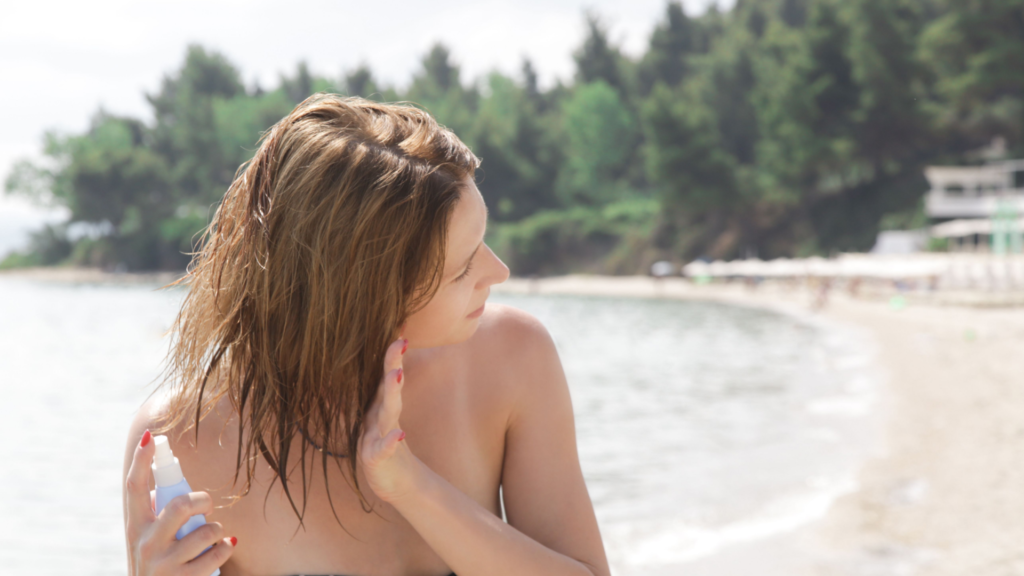Genetics can play a part in the type of hair you have, its thickness, as well as hair loss. However, other factors include the environment. In this guide, we look at the top 10 strategies for navigating environmental factors that impact hair loss as well as strategies that can help you tackle each one and minimise their effects.

Stress plays a significant role in hair health, potentially leading to conditions like telogen effluvium, where hair prematurely enters the resting phase and falls out. To tackle stress, consider integrating relaxation techniques such as meditation or yoga into your daily routine. Otherwise, taking five minutes at any point during your day to have a moment to yourself and practise deep breathing to relax your body may work better for you.
Ensuring consistent and quality sleep is vital, as it helps to rejuvenate the body and reduce stress levels. Additionally, maintaining a balanced lifestyle, including time for hobbies, things you enjoy or seeing your friends and family, can further alleviate stress and contribute to overall well-being, positively affecting hair health.
Environmental pollutants, including smog and smoke, can strip away the hair’s natural protective layer, leaving it vulnerable to damage and potentially leading to scalp inflammation. To mitigate these effects, washing your hair regularly to remove pollutant buildup is crucial. Integrating antioxidant-rich hair products into your care routine can also provide an additional layer of protection, helping to maintain the integrity of your hair and scalp.
Using hard water, which has high levels of calcium and magnesium, for washing can hinder hair growth and leave hair feeling rough and dull. Installing a water softener in your home can significantly reduce these minerals in your water supply. Additionally, using chelating shampoos (such as Watermans Grow Me Shampoo and Conditioner) specifically designed to remove mineral buildup can help restore your hair’s natural shine and promote a healthier scalp environment.
Sun exposure is a double-edged sword; while it is a natural source of vitamin D (essential for overall health), excessive UV radiation can lead to hair damage. Protect your hair by wearing hats or scarves during peak sunlight hours. Additionally, incorporating hair care products with UV protection into your routine can provide an extra layer of defence against the sun’s harmful rays (such as Aveda Sun Care Protective Hair Veil or Moroccanoil Prevent and Protect Spray for coloured hair)
Using sprays and protecting your hair on the outside won’t be enough without feeding your body with nutrients. A balanced diet rich in vitamins, minerals, and proteins is crucial for maintaining hair health. Ensure your diet includes a variety of nutrients (see Top 10 Foods for Healthy Hair) to support hair growth and strength. If you think you may lack certain nutrients, consider consulting a healthcare professional before starting any supplements to address these deficiencies.
Smoking restricts blood flow to the scalp, which can delay hair growth and lead to thinning. The most effective strategy to combat this is to quit smoking. There are numerous resources, support groups, and cessation aids available to assist you in this journey (see NHS sources).
Frequent use of hair styling products and tools can lead to cumulative hair damage over time. To minimise this risk, reduce the frequency of styling product use, choose gentle and natural hair products, and always use heat-protectant sprays when applying heat to your hair.
Dry climates can deplete your hair’s natural moisture, leading to brittleness and breakage. Using a humidifier in your home can help maintain the ambient moisture levels. Incorporating hydrating hair masks and conditioners into your care routine can significantly preserve your hair’s moisture balance.
Neglecting basic hair care practices can lead to an unhealthy scalp and potential hair loss. Maintain your hair’s health by regularly washing with a mild shampoo, avoiding excessive brushing which can lead to breakage, and getting regular trims to prevent split ends and promote hair growth.
Lack of adequate sleep can lead to stress and hormonal imbalances, negatively impacting hair health. Ensure you maintain a consistent sleep schedule and create a conducive sleeping environment to promote restful sleep.
Environmental factors play a substantial role in determining the health of your hair. By understanding these influences and implementing strategies, you can take proactive steps to mitigate their effects, ensuring your hair remains strong, healthy, and resilient against environmental challenges. If you are concerned about your the health of your hair and need more information on hair loss solutions contact Regrow Hair Centre.